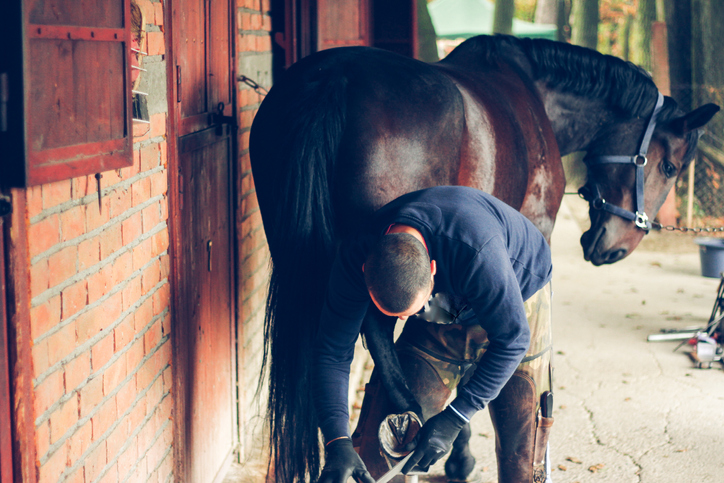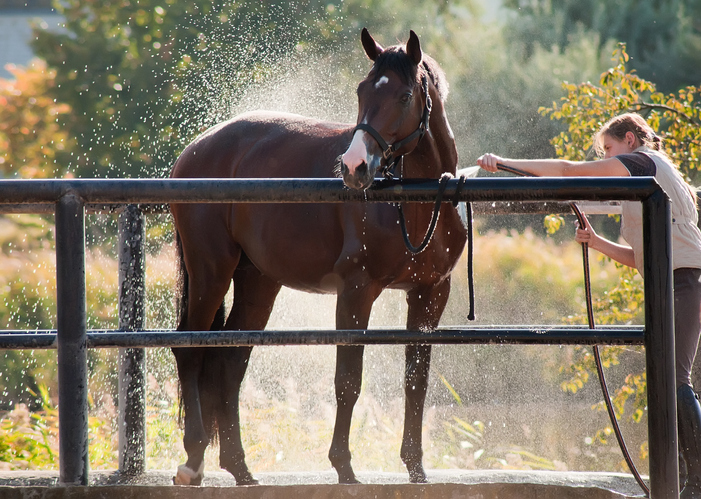If you’re thinking of buying a horse then you can look forward to a rewarding and enjoyable experience. However, these beautiful creatures come with many important long-term responsibilities that require significant time, effort and expense.
Whether this is your first horse or you’re coming back to horse ownership after a break, you need to carefully consider whether you have time in your life to care for a horse. Read our guide to find out how much time you’ll need to spare to ensure a long and happy life together.
Whether or not you take on a horse full time, if you plan on riding then you’ll need specialist horse rider insurance in place before settling into the saddle. Caring for your horse and protecting yourself from damage are important duties for all responsible horse owners.
Taking on horse ownership
Perhaps the most crucial question you can ask yourself is whether you realistically have the time to look after a horse. Whatever the weather, and whatever else is going on in your life, your equine friend will need daily care and attention.
If the horse will be kept at your own property, then you’re looking at a 365-day, round-the-clock responsibility. And while there’ll be lots of opportunity for riding and spending time together, there’ll also be plenty of rewarding but hard work. From grooming and training to hoof care and health checks, you’ll have a substantial list of things to do.

Finding the right horse
No two horses are the same and they all have their own individual quirks – that’s why they are so much fun to work with. With this in mind, time spent researching the type and age of a horse will lead to a happier relationship further down the road.
A dependable cob, for instance, is a popular choice for first-timers owing to their calm temperament, hardiness and versatility. Such a horse might be less demanding on your time than a hot-blooded ex-racehorse in need of hours of retraining!
Age is also a factor. A younger horse is an exciting prospect but requires a lot of training, while an older horse may need work to get out of bad habits – again, more time.
Time for horse care
How much actual time your horse will require will depend on a lot of factors. In general, expect to devote at least 8 to 10 hours a week to horse care. If you're doing more of the work, then 14 to 15 hours a week is more realistic. However, it all depends on your level of involvement.
We’ve broken down some of the most important jobs you’ll need to do and general time allowances. All these jobs can take longer depending on the time of year and whether other issues crop up – and they will!
- Feeding and watering
A quick 10-minute job, two to three times a day might be sufficient in summer when you don’t need to deal with frozen feed or water.
- Mucking out
Depending on how long your horse spends stabled, the type of bedding, and how often you clean it this should take from around 15 minutes to do properly. However, skipping a day or two of cleaning will create a longer clean up later.
- Exercise
Stabled horses in particular need regular training activities to keep them in tip top condition. Activities will include riding, lunging and turnout time. A half hour of activity should be sufficient but that doesn’t include time for warm-up and cool down.
- Equipment care
Readying equipment for any activity also takes time. And if you discover damage then you’ll need to spend extra time in repair and maintenance.
- Health check
Just a few minutes is all it takes to glance over your horse to make sure it’s injury and illness-free. But finding a problem will undoubtedly add to the time. This is in addition to a regular veterinary check-up. Some horse rider insurance policies can include cover for vets fees.
- Hoof care
A good five minutes to pick out hooves every day, whether or not you’ve been riding. Remember to schedule a farrier to trim your horse's hooves every six to eight weeks.
- Grooming
A good hosing down every couple of days in warm weather, especially after riding or training. Groom your horse every three days at least, but four to five days a week is even better. Each grooming session should last about 40 minutes and is a great time to bond.
- Paddock check
Take time to keep the grazing well maintained. Manure should be cleaned up weekly, and the field be kept trim and free of dangerous plants.
Remember the more time you spend with a horse, the deeper the bond will be which will benefit your riding in the long run. It will also help you avoid accidents as you’ll be able to predict your horse’s reactions. Horse rider insurance can help protect you from the financial fallout of an accident.

Alternatives to horse ownership
Owning a horse is a big commitment but if you simply don’t have the time, why not consider the alternatives.
- Riding lessons and holidays - A great way to experience life around horses, students are often asked to groom and tack up horses. And if you fancy a spot of mucking out you might even get a free lesson!
- Pony Club – For younger riders joining this international organisation lets you ride without needing your own horse.
- Volunteering – Offering to help at a local horse rescue centre means you’ll spend plenty of time around these beautiful animals.
- Leasing/loaning – Not ready for owning, but looking for more than just lessons? loaning or sharing is a good next step!
Horse rider insurance from Equesure
Whether you ride regularly or just occasionally, contact Equesure for a great deal on horse rider insurance.
In view of the commitments of time and effort you’ll want to ensure that you and your equine companion are fully protected. With over 60 years of experience in the insurance market, our team offers bespoke insurance for a horse rider policies.
These can include personal accident cover up to £20,000 and vet fees up to the value of £1,500 for accidental visible injuries.
Request a quick quote today.
Policy benefits and features offered may very between insurance schemes or cover selected and are subject to underwriting criteria. Information contained within this article is accurate at the time of publishing but may be subject to change.





